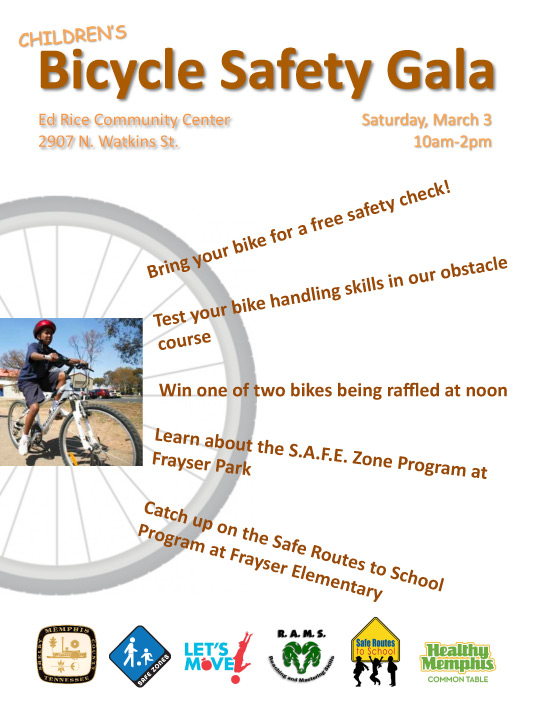This occurred several blocks from Frayser Elementary School which was awarded a $250,000 grant from the Tennessee Department of Transportation Safe Routes To School Program to implement physical changes as well as educational programs. Critics might call this "too little, too late" but I see it as an affirmation of the need for serious rethinking.
First and foremost we need to rethink the way that streets and neighborhoods are built. Compartmentalization of cities, where the housing is located in this area, industrial in that area, commercial over there, doesn't really work. In this case a residential neighborhood butts up against a commercial corridor and there is a drastic change in the way that people perceive movement through those areas. A person may think 45 - 50mph is a reasonable speed through that corridor because everything else is designed for that speed - wider roads, tall business signs, driveway parking lots, etc. But some things aren't designed for that speed: people. Whether it's a pedestrian or a cyclist, neither have been given due consideration in that kind of development. It's not just Overton Crossing. I'm sure you drove on Poplar today or yesterday - you look out and up for your destination sometimes pulling into the parking lot at 35mph, or you pull up into the crosswalk, or you turn left in front of a person crossing the street. Why? You either aren't used to seeing people or you think that because you're faster you have the right of way. Please stop and rethink. That person walking could be my wife, or my doctor, or my mother.
Secondly, we need to rethink bicycles. The mother of Joniah said she's thinking of getting rid of the rest of the bikes. There's no need to deprive the other two children of the enjoyment and freedom of bicycles. What does need to happen is those bikes need to have safety checks. More importantly, every bike that is sold needs to be more strongly regulated. I know these bikes meet the Consumer Product Safety Commission's (CPSC) requirements but when the CPSC sees one in 2 million of that same bike it has been put together by a professional bicycle mechanic, not an employee at his first job at Tar-Mart who doesn't know the difference between a nut and a bolt. I'd like to see a resurgence of quality over quantity. I'm not laying blame on big box stores, Joniah's bike could have come from my shop. That brings us to a second and more important point to think about: education. Children may or may not know their brakes don't work. Children probably don't know that letting their bike fall on the ground will break the cheap plastic brake levers. They don't know that leaving the bike outside will allow the cables and other parts to rust so that they can't actually use them. Parents sometimes don't know that their child's brakes don't work. There are often not sufficient signs in an area to let drivers know that children are present. One time Emily crashed her bike and the seat went crooked. She excitedly told me that she fixed it all by herself by laying it flat on the ground and stomping it until the seat was straight! With wide eyes and gaping mouth I spouted expletives and the word "quick release."
That's why this Saturday's Children's Bicycle Safety Gala is important. It's important to have these frequently and at multiple locations. In the future I hope that these happen on school days at the schools so more young minds can be educated. This is also why it's important to have operations like Revolutions who is sending over volunteers to help with the Gala. This is something that can be fixed. A child's life is too important.

No comments:
Post a Comment